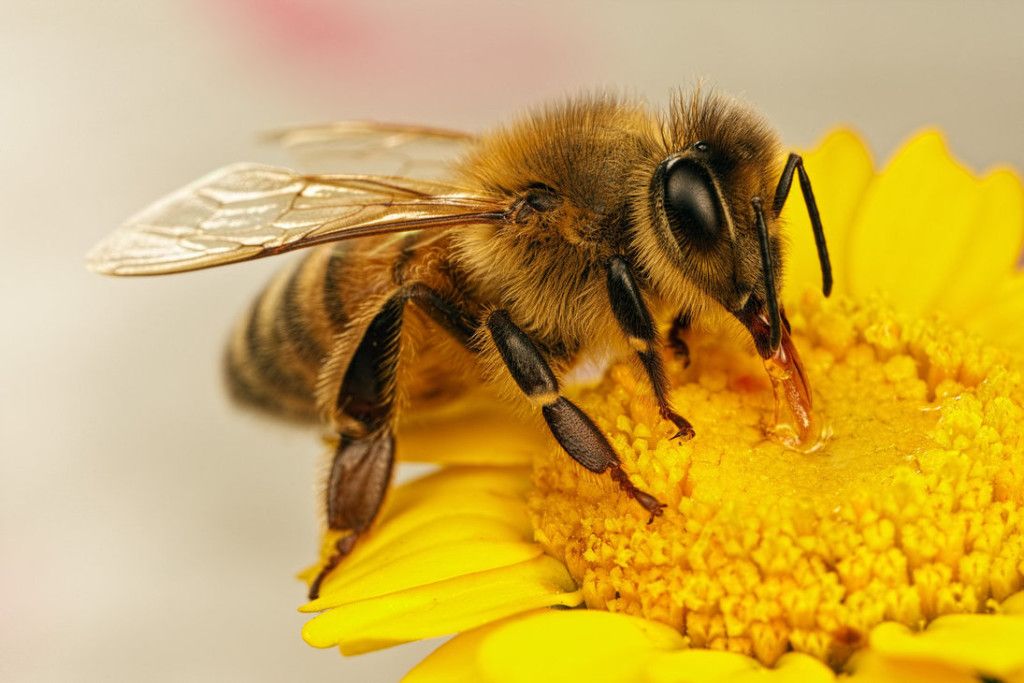Recently going through a daily newspaper copy, I stumbled on this African proverb, which caught my fascination and got me, relieving the good old days when we were taught pollination in primary school under the subject “Elementary Science” and then “Integrated Science” in secondary school. One of the lessons that stuck to me ever since is how pollination is a pre-fruit bearing process that need the skillful activities of key players like bees. This is a confirmation of this ancient wisdom recognising how flowers are treated by the bee just like doctors treat patients. How then does this play out?
The proverb, “the bee is the doctor of flowers”, paints a vivid and enchanting picture of the deep connection, between bees and flowers in the natural world. In a local context like Nigeria, this analogy holds true as bees are essential pollinators that contribute to crop yield and food security. Consider the vast array of crops in Nigeria, such as cocoa, mangoes, and guavas; heavily reliant on bee pollination. A decline in bee populations would result in decreased yields, impacting both farmers’ livelihoods and the nation’s economy. Moreover, the interconnectedness of ecosystems means that the absence of bees could disrupt the delicate balance of nature, affecting biodiversity.
Imagine a bustling garden bathed in sunlight, a canvas alive with a riot of colours. In this vibrant scene, flowers stand like patients waiting for their dedicated physician. Enter the bee, a small, but industrious creature, zooming from one flower to another with unwavering purpose. It’s as if the bee holds the secret to unlocking the very life force within these blossoms. The relationship is in how bees, in their ceaseless quest for nectar, inadvertently transfer pollen grains from one flower to another. This seemingly incidental action is the catalyst for fertilisation, leading to the production of fruits and seeds. Imagine the buzzing activity within a Nigerian farm – bees darting from flower to flower, orchestrating a symphony of life. This synergy is a testament to the collaborative harmony that exists between nature’s tiny healers and the toil of human hands.
As the bee lands delicately on a flower, it begins its intricate work. With each sip of nectar, the bee transfers pollen from one bloom to another, like a knowledgeable doctor sharing healing remedies. This seemingly simple act is, in fact, a masterpiece of nature’s design – a symphony of life and propagation. In this symbiotic relationship, the bee serves as both messenger and healer. The pollen it carries, acts as a conduit, enabling flowers to reproduce and create new life. Just as a doctor’s touch can bring relief and vitality to a patient, the bee’s actions breathe life into flowers, allowing them to fulfill their purpose in the grand tapestry of nature.
Each bee’s journey through the garden is like a medical consultation. It assesses the needs of each flower, facilitating cross-pollination that ensures the health and genetic diversity of the plant population. Just as a skilled physician understands the intricacies of the human body, the bee possesses an innate understanding of which flowers require its attention. Yet, like any relationship, the one between bees and flowers is delicate and vulnerable. Changes in the environment, pollution, and loss of habitat can threaten the bee’s ability to play its vital role. If the bees were to vanish, it would be like a hospital losing its doctors – an ecosystem-wide catastrophe that could disrupt the very foundation of life itself.
To illustrate, imagine a scenario where bee populations decline due to pesticide misuse or habitat destruction. This could lead to lower cocoa production, a crucial export for Nigeria. With fewer bees to pollinate cocoa flowers, farmers would face decreased yields, translating to financial losses for both small holders and larger agricultural enterprises. This domino effect could also reverberate through related industries like chocolate manufacturing and export. In essence, the proverb “the bee is the doctor of flowers” captures the essence of nature’s exquisite balance and interdependence. It reminds us that even the tiniest creatures have a profound impact on the world around them. Just as a doctor upholds the well-being of their patients, bees ensure the vitality and perpetuation of the floral world – a testament to the intricacies of life’s interconnected web.



